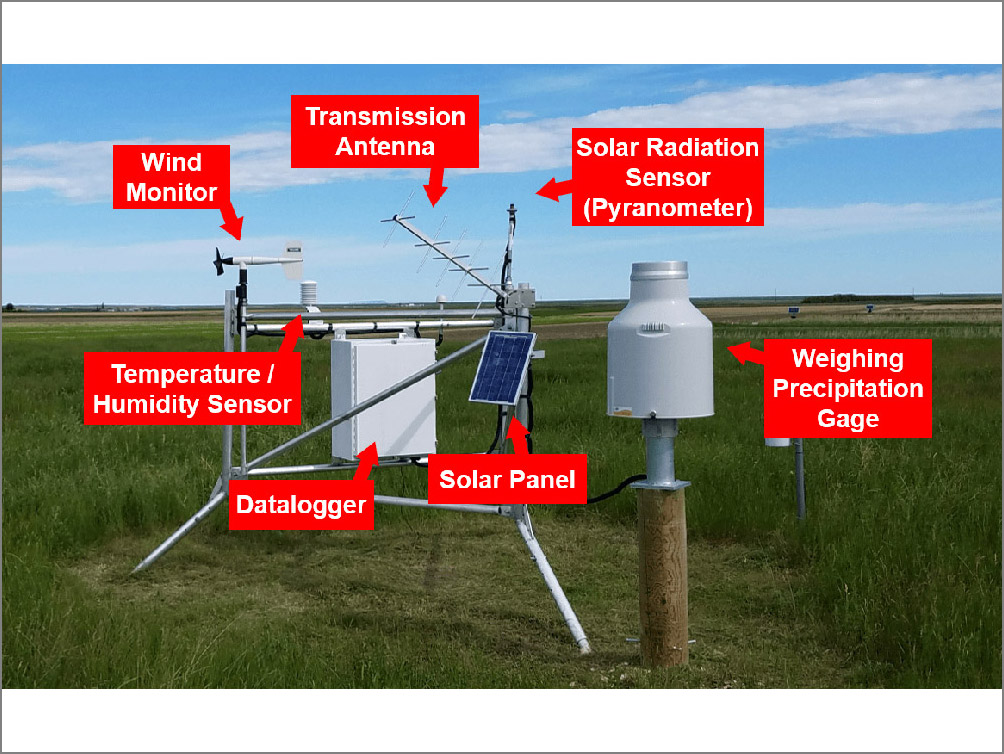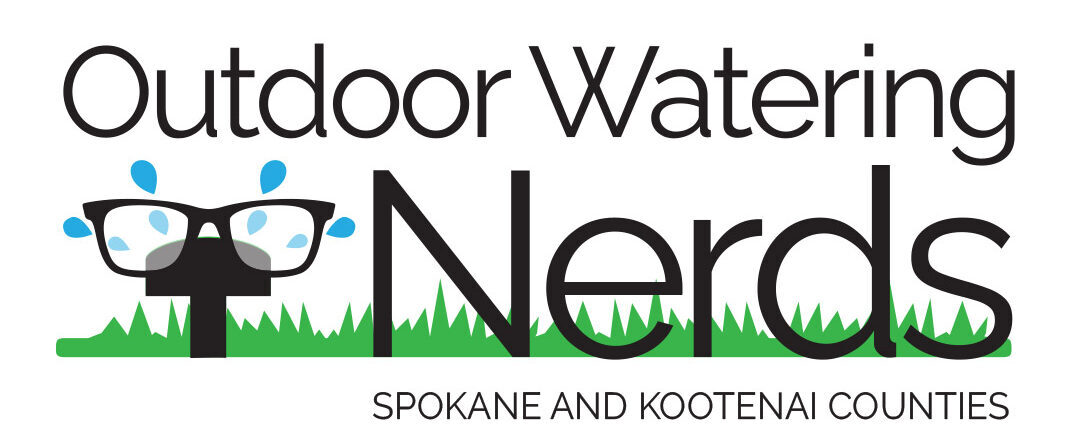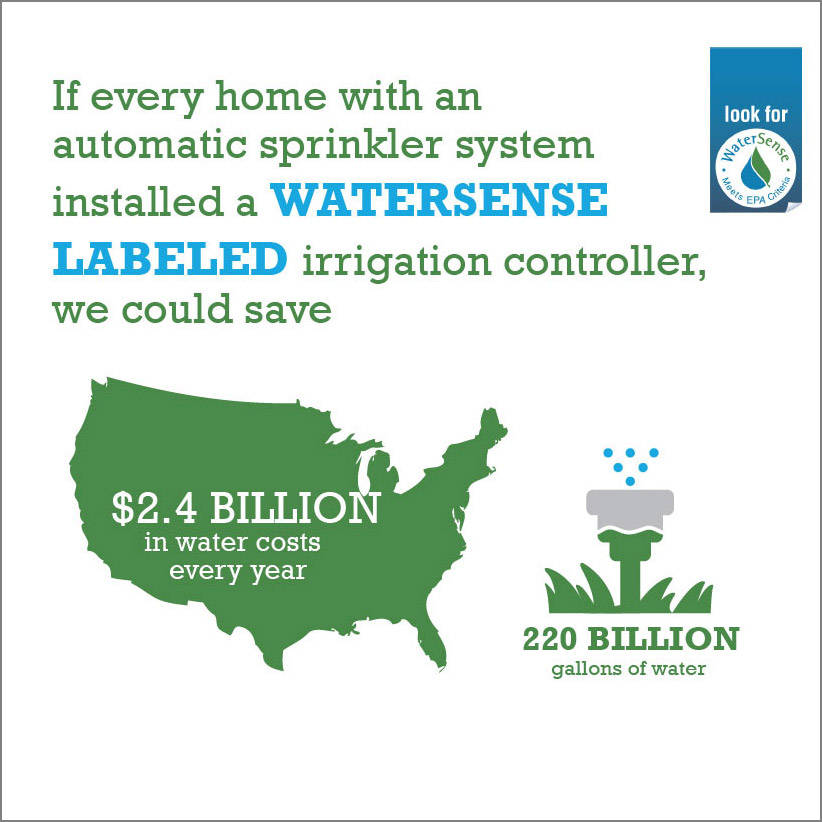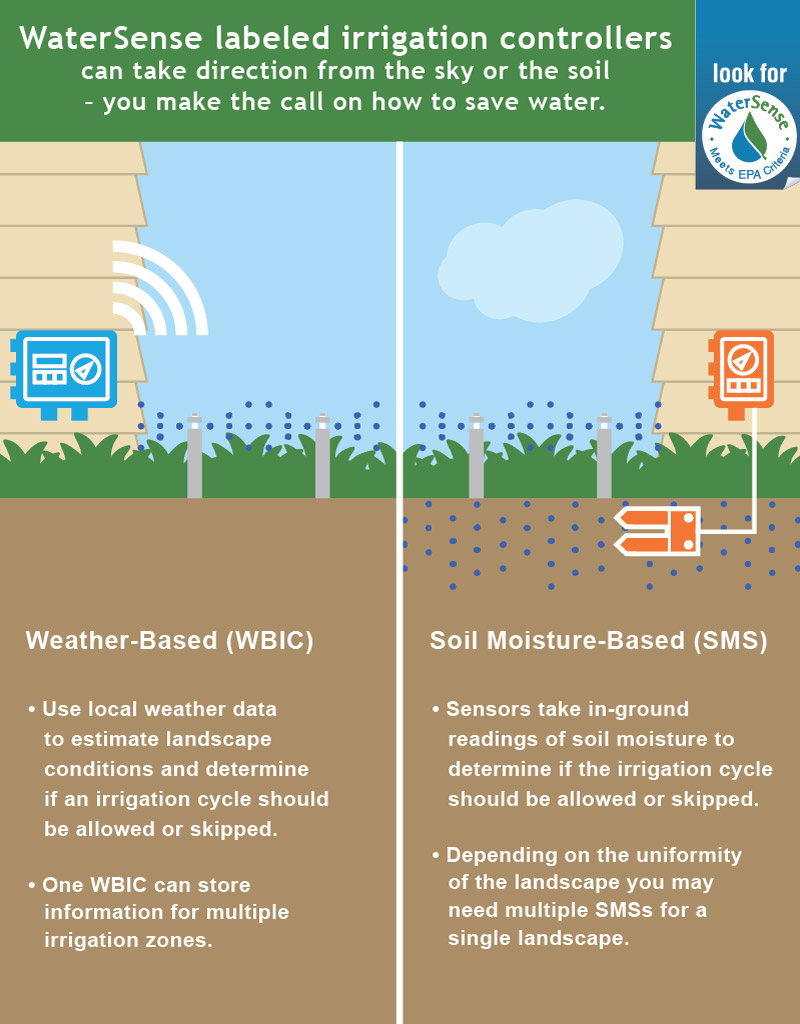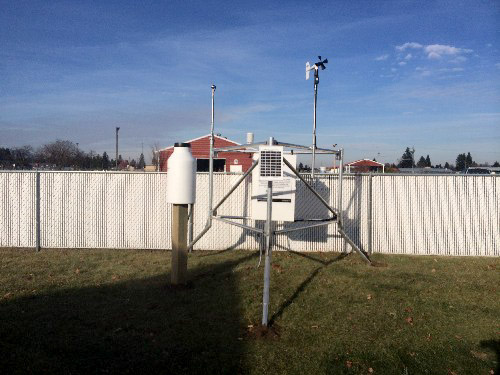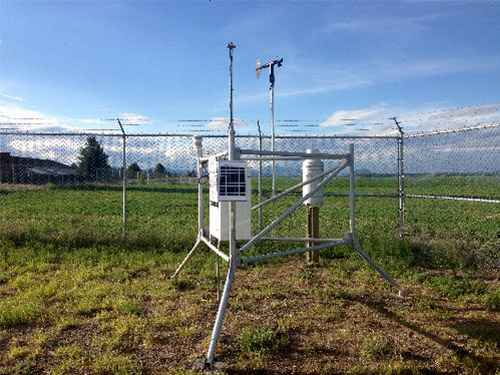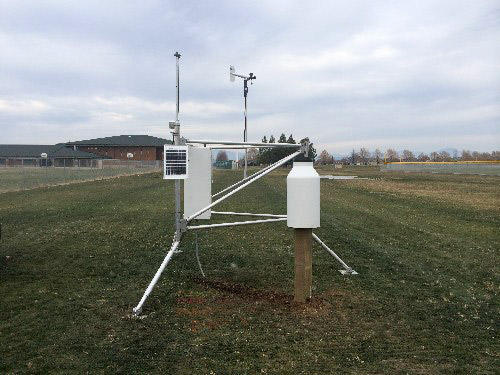Smart Controllers & Sensors
Do you want to improve the efficiency of your sprinkler system and save water? A Weather Based or Soil Moisture Sensor Based Irrigation Controller will reduce outdoor water waste and deliver just the right amount of water for your lawn and plants to be healthy.
However, a smart controller won’t fix a poor irrigation system. Leaks, improper maintenance, and inefficient sprinkler placement are very common irrigation system issues that should be addressed before you upgrade the controller. Go to Nerds Repair and Retrofit for water distribution and sprinkler issues. Go to Nerds Leak Detection for leaking pipes and sprinklers. Or do a complete Nerds Sprinkler System Check-up.
When sprinkler pipes, heads, nozzles, and valves are working efficiently, consider Controller Options 1 and 2. Choose the one that is best for your situation.
EPA estimates that more than 28 million homes across the United States have in-ground sprinkler systems that typically schedule watering with a clock-based controller. Too often watering schedules are set once in the spring and turned off in the fall and programmed to apply the amount of water needed for the hottest time of the summer instead of changing with the seasonal water needs. Check out the Nerds Water Needs Calculator.
Smart Watering
WaterSense labeled irrigation controllers reduce water waste outdoors while keeping landscapes healthy. Companies that produce EPA WaterSense approved Weather Based Irrigation Controllers (WBIC) are Baseline, Hunter, Hydropoint, Orbit B-Hyve, Rachio, Rainbird, Rainmaster, Toro, Weathermatic, and Wyze. Click here for a list of over 900 WaterSense approve WBICs.
WaterSense labels two types of irrigation controllers that can help you water more efficiently.
Weather-based irrigation controllers (WBIC) use local weather data and landscape conditions to tailor watering schedules to the needs of your lawn. WBIC receive data from local Agrimet Stations.
Soil moisture-based irrigation controllers, also known as soil moisture sensors (SMSs) monitor moisture levels in the soil to prevent irrigation when water is not needed.
WBICs receive daily data through the Bureau of Reclamation Columbia-Pacific Northwest Region Agrimet Stations. Local Stations are in Coeur d’Alene, ID and Deer Park, WA and Liberty Lake, WA.
For all you Nerds like us, or people with lots of different crops, check out the WSU AgWeatherNet Current Conditions Map. You can create an account and have your own portal with daily weather data for your crops of interest.
AgriMet Station Components
